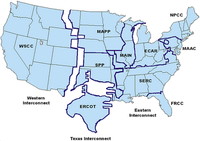-
Huawei rejects U.S. “threat to national security” claims
In October the United States House Intelligence Committee issued a report warning U.S. companies against using two Chinese companies, Huawei and ZTE, for their telecommunication technology needs; the report said that the firms may be too close to China’s Communist Party and its military’ the report also suggested their products and services could pose a threat to the security of the United .States; Huawei vigorously disputes both claims
-
-
DARPA’s program to reveal backdoors, hidden malicious functionality in commercial IT devices

The scenario is one that information security experts dread: widespread dissemination of commercial technology which is secretly wired to function in unintended ways or even spy on its users; from this vantage point, mobile phones, network routers, computer work stations, and any other device hooked up to a network can provide a point of entry for an adversary; for the Department of Defense this issue is of great concern, and DARPA pland to do something about it
-
-
Pacemakers, other implanted devices, vulnerable to lethal attacks

IT experts reported that security flaws in pacemakers and defibrillators could be putting lives at risk; the experts say that many of these devices are not properly secured and therefore are vulnerable to hackers who may want to commit an act that could lead to multiple deaths
-
-
DHS awards $23.6 million to fund development of new software analysis technology
DHS awarded a $23.6 million grant to the Morgridge Institute for Research at the University of Wisconsin-Madison to create the Software Assurance Marketplace, which, over the next five years, will work closely with developers of new software analysis technology and the open source community to advance the security of software; initial operating capabilities for the Software Assurance Marketplace will include the ability continuously to test up to 100 open-source software packages against five software assurance tools on eight platforms, including Macintosh, Linux, and Windows
-
-
New method to rid inboxes of unsolicited e-mail
Spam used to be text-based, but has recently turned high-tech, using layers of images to fool automatic filters; thanks to some sophisticated new cyber-sleuthing, researchers at are working toward a cure
-
-
U.S. electric power grid “inherently vulnerable” to terrorist attacks: report

The U.S. electric power delivery system is vulnerable to terrorist attacks which could cause much more damage to the system than natural disasters such as Hurricane Sandy, blacking out large regions of the country for weeks or months, and costing many billions of dollars, says a newly released report by the National Research Council
-
-
Georgia Tech releases cyber threats forecast for 2013
The year ahead will feature new and increasingly sophisticated means to capture and exploit user data, escalating battles over the control of online information and continuous threats to the U.S. supply chain from global sources; those were the findings made by the Georgia Tech Information Security Center (GTISC) and the Georgia Tech Research Institute (GTRI) in this week’s release of the Georgia Tech Emerging Cyber Threats Report for 2013
-
-
South Carolina exploring different cybersecurity plans
Last month state officials in South Carolina discovered a massive breach at the Department of Revenue; the attack exposed 3.6 million social security numbers of residents in the state, 387,000 credit and debit card numbers, and information for 657,000 businesses as well as other personal information; now, officials are trying to figure out what security measures they need to take in order to prevent another attack
-
-
Michigan launches Cyber Range – a cutting-edge cybersecurity training program
Michigan has launched the Michigan Cyber Range, a state-of-the-art facility that prepares cybersecurity professionals in the detection and prevention of cyber attacks; the initiative pairs cybersecurity resources with hands-on training opportunities to enhance Michigan’s protection of computer systems and sensitive data
-
-
New international consortium helps shape future cybersecurity practices
The Consortium for Cybersecurity Action (CCA), a newly-formed international consortium of government agencies and private organizations from around the world, will host a conference call to promote the most effective approaches to cybersecurity and support eleven key developments which are shaping events
-
-
Ensuring that software security policies reflect user needs
Researchers have developed a new natural language processing tool that businesses or other customers can use to ensure that software developers have a clear idea of the security policies to be incorporated into new software products
-
-
Dutch law enforcement wants the authority to hack foreign computers
The Dutch government plans to give Dutch law enforcement services the ability to hack into computers – not only in the Netherlands, but also those located in other countries – for the purpose of discovering and gathering evidence in cybercrime investigations
-
-
Kaspersky Lab working on a secure operating system for critical infrastructure
Antivirus firmKaspersky Lab is set to make a major contribution to the security of critical infrastructure systems by developing an operating system specifically designed for such systems; the new operating system will protect information used in infrastructure such as nuclear power plants, transportation control facilities, gas and electrical systems,and other facilities “criticallyimportant” to the economy and well-being of industrialized societies
-
-
Cybersecurity bill supporters want a vote on bill in this Congress
Last week, lawmakers and top White House officials appeared in different events, conferences, and industry gatherings to promote the cyber security bill which has been stalled in the Senate since August; administration’s officials and lawmakers supporting the bill warned that the current situation leaves U.S. critical infrastructure and businesses vulnerable to attack from hackers and spies
-
-
Experts, engineers gather to contribute to DARPA’s Plan X

DARPA’s Plan X will attempt to create revolutionary technologies for understanding, planning, and managing DoD cyber missions in real-time, large-scale, and dynamic network environments; Proposers’ Day dialogue cements program approach
-
More headlines
The long view
Ransomware Attacks: Death Threats, Endangered Patients and Millions of Dollars in Damages
A ransomware attack on Change Healthcare, a company that processes 15 billion health care transactions annually and deals with 1 in 3 patient records in the United States, is continuing to cause massive disruptions nearly three weeks later. The incident, which started on February 21, has been called the “most significant cyberattack on the U.S. health care system” by the American Hospital Association. It is just the latest example of an increasing trend.
Chinese Government Hackers Targeted Critics of China, U.S. Businesses and Politicians
An indictment was unsealed Monday charging seven nationals of the People’s Republic of China (PRC) with conspiracy to commit computer intrusions and conspiracy to commit wire fraud for their involvement in a PRC-based hacking group that spent approximately 14 years targeting U.S. and foreign critics, businesses, and political officials in furtherance of the PRC’s economic espionage and foreign intelligence objectives.
Autonomous Vehicle Technology Vulnerable to Road Object Spoofing and Vanishing Attacks
Researchers have demonstrated the potentially hazardous vulnerabilities associated with the technology called LiDAR, or Light Detection and Ranging, many autonomous vehicles use to navigate streets, roads and highways. The researchers have shown how to use lasers to fool LiDAR into “seeing” objects that are not present and missing those that are – deficiencies that can cause unwarranted and unsafe braking or collisions.
